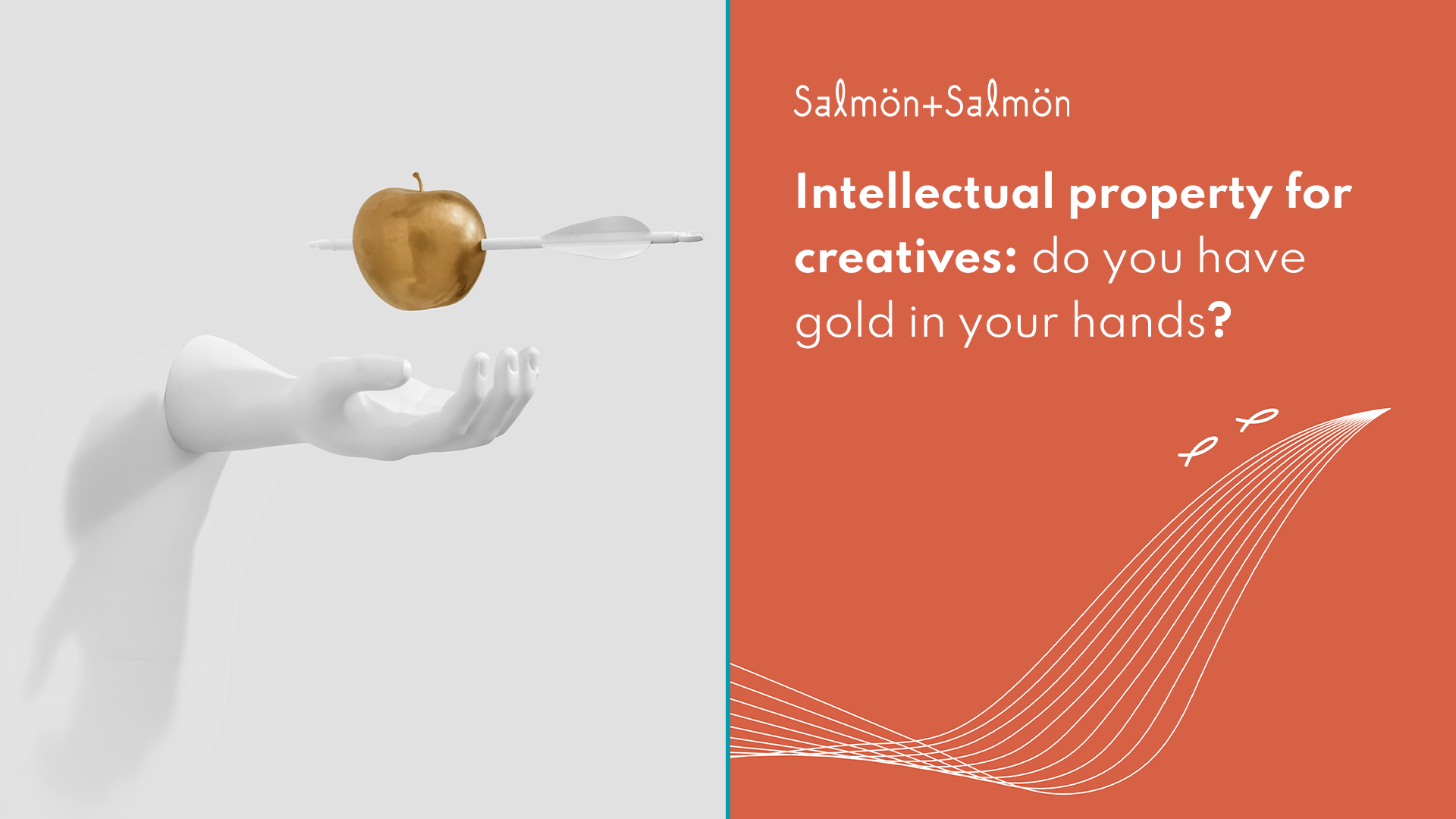Intellectual property for creatives: do you have gold in your hands?
How intellectual property works? We’ll share all the ins and outs. As a creative or creative agency, understanding and protecting your Intellectual Property (IP) is essential to ensure you can reap its financial benefits. However, chances are you’re not aware of the possibilities and you may even lament how poorly the creative sector is still treated by its own clients. Some words of clarification…
This is precisely why there are intellectual property laws:
they protect your work and ensure that you can fully exploit what you have created and reap the financial benefits. Things get interesting when you start to see IP as an enabler of creative opportunities.
What is Intellectual Property (IP)?
Intellectual property is defined by the World Intellectual Property Office as following:
“Intellectual property (IP) refers to creations of the mind such as inventions; literary and artistic works; designs; and symbols, names, and images used in commerce. IP is protected in law by, for example, copyright, trademarks, and patents, which enable people to earn recognition or financial benefit from what they invent or create. By striking the right balance between the interests of innovators and the wider public interest, the IP system aims to foster an environment in which creativity and innovation can flourish.”
In a nutshell, it states that anyone who converts an idea into a tangible work could obtain exclusive rights on it, provided certain requirements are met. They can be recognized as the creator and they should be able to earn from their work. It seems pretty logical, but in the 20 years that I’ve been working in creative industry, I’ve noticed that few creative people have any understanding of IP and its rights. They pass on their creations to their clients, no questions asked. This is understandable when we’re talking about the layout of a brochure or a company video. But what if we’re dealing with a creative expression that could become a game-changer?
Is intellectual property copyright?
Copyrights are automatically assigned if the artistic work is new and original – although in many cases, to be granted protection, said work also have some “artistic” threshold (i.e. it might reflect and be the expression of the author’s personality).
You can’t own an idea itself, but the physical expression of that idea – whether it’s a movie, a design, a piece of code, or whatever – is subject to the copyright laws.
Copyright is not only an automatic right, it is also a property right; if you own the copyrights to an image, a play, or something else, you can choose whether to reproduce it, sell it, license it, and so on.
Think of all that great creative output you’ve developed during your career. You own all the copyrights! Well, unless you’ve transferred it to a client as part of a deal, or your employment agreement states that your employer owns the IP of everything you create during your working hours.
Many creative agencies and other companies therefore sit on a mountain of copyrights, but do little to nothing with it. However, with a little creativity (and that shouldn’t be a problem

) you can look for new platforms, markets and target groups. to build additional revenue streams. For you, having genius ideas may be a daily occurrence, but for others this is rare. Many companies are always looking for new ideas. So even if you don’t have the energy, time or resources to start working on building your copyrights yourself, a joint venture with a third party might be a solution.
Trademarks, design rights and patents
Copyright is an automatic right. Industrial non-registered designs can receive some, albeit limited, protection. Trademarks need to be registered, unless they have a well-known character in the territory, in which case they are granted certain protection. Inventions need to be registered as patents, otherwise, once disclosed, they will be available for free to the general public. Needless to say, registration is only worth it if you intend to use and exploit your IP in business.
An example: let’s say you offer a certain service to your customers in your company and you feel that this service can stand on its own. By giving it a name and registering it as a trademark, you protect your service so that you can market it more confidently.
Why not take a look at what potential IP rights you still have lying in your drawer? Who knows, without even realizing it, you might be sitting on a golden platter… and already own a potentially groundbreaking piece of creativity.
If you have any questions about what IP can do for you, or if you need help protecting your creations, please let us know.
We are experienced at using IP for growth and enforcing your rights.
CONTACT US
 ) you can look for new platforms, markets and target groups. to build additional revenue streams. For you, having genius ideas may be a daily occurrence, but for others this is rare. Many companies are always looking for new ideas. So even if you don’t have the energy, time or resources to start working on building your copyrights yourself, a joint venture with a third party might be a solution.
) you can look for new platforms, markets and target groups. to build additional revenue streams. For you, having genius ideas may be a daily occurrence, but for others this is rare. Many companies are always looking for new ideas. So even if you don’t have the energy, time or resources to start working on building your copyrights yourself, a joint venture with a third party might be a solution.

